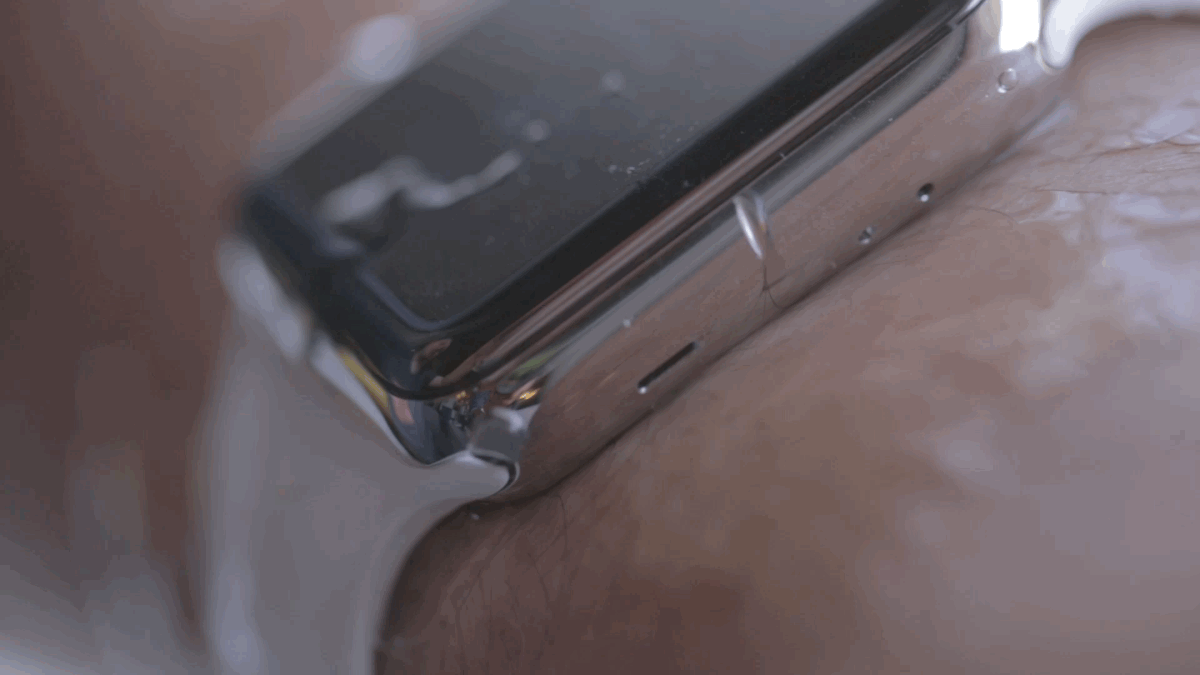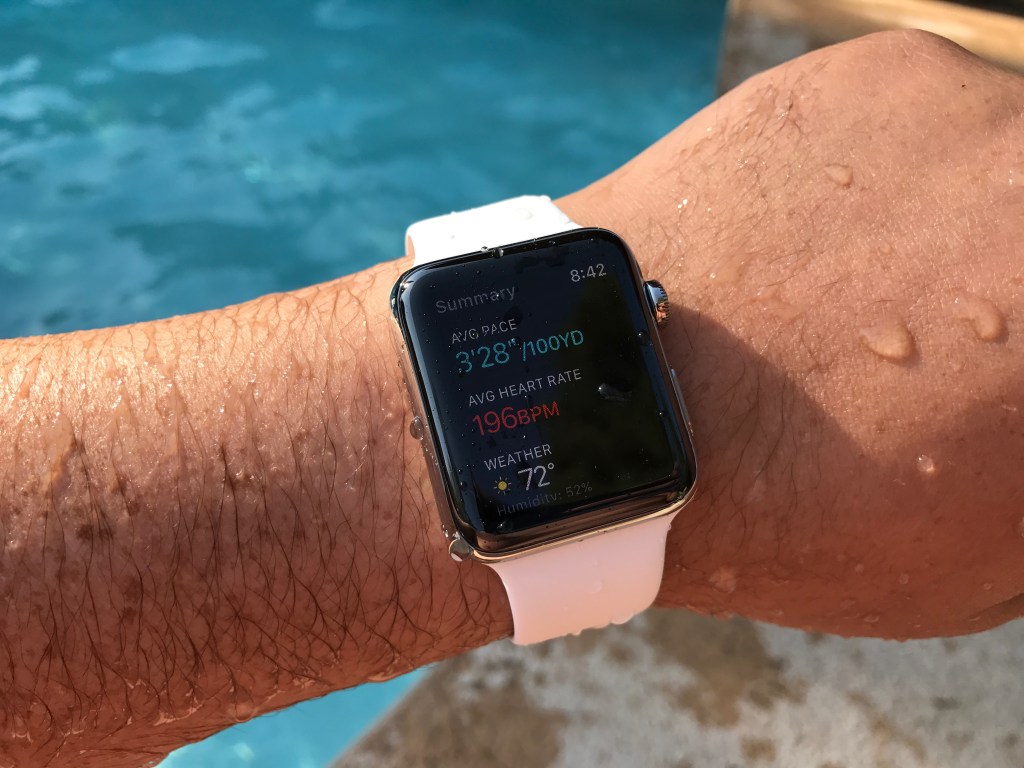The Apple Watch Series 2 is the first real Apple Watch.
It delivers on the promise of a mostly passive device that can accomplish simple tasks in 1-3 seconds. There is now built-in GPS which allows for exercising without having to lug along a comparatively heavy iPhone just to get accurate tracking. And it’s completely waterproof, as any decent sport watch should be.The casing is actually ever so slightly thicker than the first generation, likely due to the larger battery. Apple says that the processor inside is 50 percent faster and that bears out in testing. In side-by-side tests with an original Apple Watch Series 0, the Watch S2 opened applications and loaded data much faster. When the original Watch was still opening and loading the activity screen, I was already scrolling down the list of data collated from my week. The same went for Maps, calendars and more.
The screen is noticeably brighter now, making text, especially on activity summary screens, much easier to read.
Because of the speed and brightness, I have already found myself using the Watch for interactions more often. This had already started happening a bit with Apple’s WatchOS 2 update last year, which improved performance significantly, but it’s incredibly apparent now with the faster processor.
When you enter the swimming mode, the screen locks so that the water doesn’t trigger the touch screen as your hands enter and exit. For indoor swims, the internal sensors of the watch will calculate what your stroke type is based on extensive analysis of swimming styles in the lab. Much like gait detection works for running.
For outdoor swims, the Watch can also acquire GPS signals when it’s up out of the water on the up or down strokes. Under water it cannot get a signal and therefore relies on those temporary check-ins.
The new WP 50m waterproofing made it easy to test the swimming functions without having to worry. I set my pool length and duration and jumped right in. The measurements performed as advertised, offering up my preferred stroke, my heart rate and pace and a host of other measurements that seemed pretty accurate.

When you’re done with your swim, you turn the digital crown to unlock the screen and the Watch sends pulses of sound through the speaker, impelling the water out of the speaker holes in a spitting motion. This clears the speaker chamber so that audio coming out of the Watch isn’t muffled. It’s clever, and it works exactly as advertised.
I am not a runner, so I did not test the GPS functions of the Series 2 Watch in that context — but it works just fine while swimming.
The new stuff seems to work just fine — providing a far superior experience to the first generation. This execution on the promise of ‘lightweight interaction’ is important to Apple’s overall strategy with the Watch. Last year I wrote about its place in Apple’s new pantheon of devices:
Here’s a thought that I’ve been having more and more lately: the smartphone isn’t just a computer, it’s the computer.
Somehow, unbelievably, humans have stumbled onto the computing paradigm that is going to define how we interact with the systems of the world relatively early in the technological timeline. Whether we call it a smartphone or not in the future and whether it shrinks or grows, the concept of a personal computer that contains what we are, digitally, and can act as the central ‘processor’ to a host of companion devices like desktop terminals and wearables is here to stay.
If you accept this premise, then it makes sense to imagine a world where there are various pieces of purpose built hardware orbiting around our ‘central processing unit’ that are all suited to various tasks. We walk up to a terminal and confirm our identity and it streams information from a device that links our identity, our place and our information together securely to let us immediately work. This is the missing bit to the ‘cloud computer’ — a way to triangulate our physical beings and our digital universe in a way that feels human and logical.
Adding GPS layers is another slice of independence for the Watch, which will eventually gain cellular functionality so that it can communicate with your phone — and Apple’s cloud services — wherever it is. This is in keeping with Apple’s philosophy that “your data is your data.”
If the iPhone is your central repository, which performs local AI functions like sorting images, proactively giving directions and organizing your calendar, then these armatures that Apple is building around it can communicate directly, rather than relying on cloud-based AI systems that are inherently less private and less secure.
Yesterday, I noted that the iPhone 7 and 7 Plus, along with the AirPods, formed the other two legs of this triangle. A central processor that is accessed or utilized increasingly by satellite devices. Think of Apple’s new ecosystem like a body. The iPhone is the brain, the AirPods are the mouth and the Apple Watch is the hand. And that hand is starting to get more independent and more useful.




































Comment